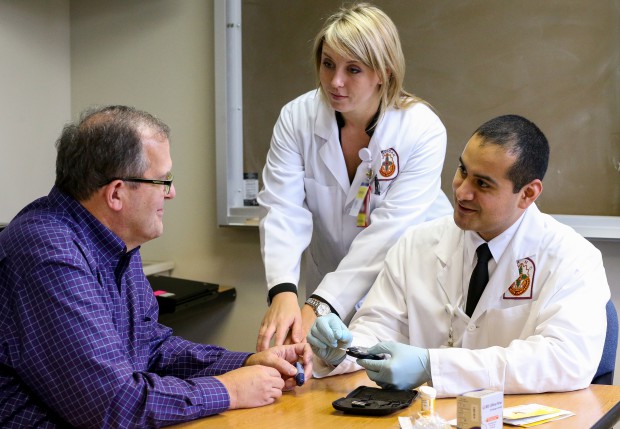Seeking health care as a patient can be daunting. Questions can range from seemingly basic – how to choose a doctor, or when to ask about specific symptoms, to more complex – where to have a test or scan, or how to understand the results. This is true even if you are in great health, but if you are facing a serious illness or chronic condition, navigating your health care experience can feel truly daunting.
The best place to start is with your primary care physician. A good relationship with your doctor is about your health, but other factors like mutual trust, communication, and understanding are also at play. “The better you two get along, the more satisfying your relationship, and that’s good for your health,” writes Nissa Simon, a contributor to AARP media on health issues.
Regardless of your particular health care needs, preparing in advance before a doctor’s visit, hospital stay or even trip to the pharmacy can make your experience less frightening and more likely to feel successful. Below are five steps to be an active, rather than passive, consumer of health care.
- Be Prepared. Any health encounter will be easier and more productive if you are already familiar with your medical and health history. It may be helpful to have your past health records available. Writing down a few lists ahead of time is also a good idea:
- All prescription medications you take.
- All over-the-counter medications or nutritional supplements you take.
- Health episodes or problems you’ve had and when they occurred (at least as best as you remember).
- Ask Questions. Before any appointment with a health care provider, write down a list of questions you want to ask and concerns you want to discuss. When you’re at the appointment, take notes. Always ask for clarification if there’s anything you don’t understand – and write that down, too. Questions to consider might include:
- What are the risks and benefits of any medications that have been prescribed?
- What are the instructions you need to follow if taking a prescribed medication?
- If tests are recommended, what are the costs? Are there any less expensive options available?
- For any medication or treatment, what outcomes should you expect? What side effects should you watch for, and can you avoid them?
- If a procedure is recommended, how many of times has your provider performed it before? (Providers expect this question; don’t be embarrassed to ask.)
- Consider alternatives. Together with your care provider, be open to considering alternative treatment options. Is there new technology available to help in your care? If an invasive treatment or surgery is recommended, are there other options you should consider first? While seeking out additional information about symptoms or a proposed treatment can provide valuable context and offer potential alternatives.o evaluate, be sure to look to reputable, objective sources of evidence-based information.
- Find Support. It can be helpful to have a family member or close friend accompany you to an office visit or test. Often, a companion can focus on taking notes and confirming what steps, if any, are needed for follow up, while you are paying attention to a diagnosis and asking questions. If you are diagnosed with a chronic disease or serious illness, there are many advocacy groups that offer support and can lead you to advice and guidance while also providing compassion and opportunities to connect with others experiencing similar symptoms and challenges.
- Seek a Second Opinion, If Needed. If you begin to feel uncomfortable or unsure about a doctor or other clinician, don’t be afraid to get a second opinion or even change providers. It is important to trust the care you are receiving and to feel comfortable with the people who are providing your care.
The Cleveland Clinic’s blog Health Essentials, on seeking a second medical opinion notes, “[I]n some cases, the opinion provided by a second physician may agree with the diagnosis and treatment identified by your physician. This can provide you with significant reassurance, peace of mind and confidence that you are making the best choice for your health.”
Having a general approach in mind for dealing with complex medical care will make any health care encounter more comfortable, and might even improve your health outcomes. The above steps are a starting point, but taking an active role to work closely with your health care team can lead to a treatment approach that is the right one for you.
AlternativesA broad category of investments that don’t fit into traditional categories like stocks and bonds.AlternativesA broad category of investments that don’t fit into traditional categories like stocks and bonds.




